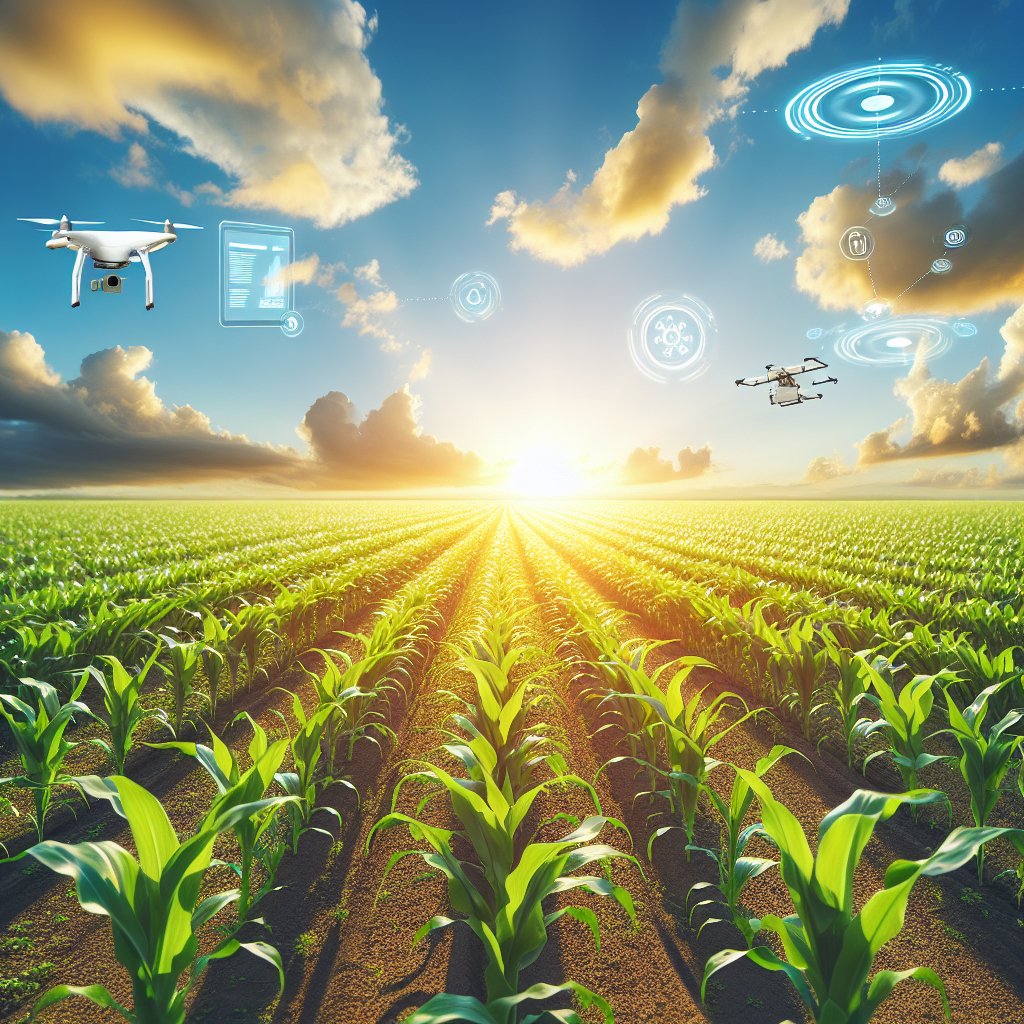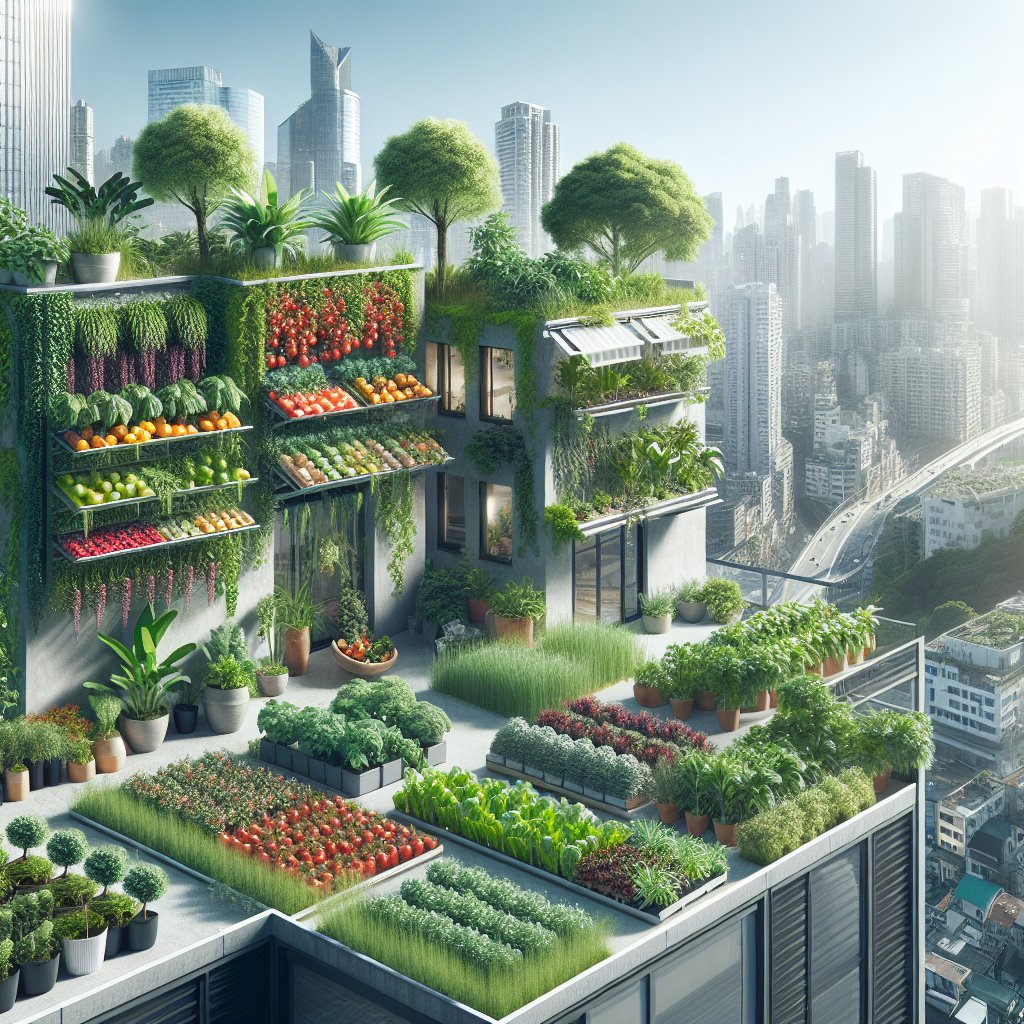Artificial Intelligence (AI) is revolutionizing various sectors, and agriculture is no exception. As the global population continues to grow, the demand for food production increases, necessitating more efficient and sustainable agricultural practices. AI technologies are stepping in to meet these challenges by transforming traditional farming methods, enhancing productivity, and promoting sustainability.
AI-Driven Precision Agriculture
Precision agriculture is one of the most significant advancements in modern farming, and AI plays a crucial role in its development. By utilizing AI algorithms, farmers can analyze vast amounts of data collected from various sources such as satellite imagery, drones, and sensors. This data-driven approach allows for more precise decision-making, optimizing the use of resources like water, fertilizers, and pesticides.
AI systems can predict weather patterns, soil conditions, and crop health, enabling farmers to tailor their practices to the specific needs of their fields. For instance, AI-powered drones can monitor crop growth and identify areas that require attention, such as those affected by pests or diseases. This targeted approach not only increases yield but also reduces the environmental impact of farming by minimizing the use of chemicals.
Moreover, AI technologies facilitate the automation of various farming tasks. Autonomous tractors and machinery equipped with AI can perform planting, watering, and harvesting with minimal human intervention. This automation not only increases efficiency but also addresses labor shortages in the agricultural sector.
Enhancing Crop Management and Yield Prediction
AI’s ability to process and analyze large datasets is particularly beneficial for crop management and yield prediction. Machine learning algorithms can identify patterns and correlations in historical data, helping farmers make informed decisions about crop rotation, planting schedules, and harvesting times.
Yield prediction models powered by AI can forecast crop output with remarkable accuracy. These models consider factors such as weather conditions, soil quality, and historical yield data to provide farmers with insights into expected production levels. This information is invaluable for planning and resource allocation, ensuring that farmers can meet market demands and reduce waste.
Additionally, AI can assist in breeding programs by analyzing genetic data to identify traits that contribute to higher yields and disease resistance. This accelerates the development of new crop varieties that are better suited to changing environmental conditions and consumer preferences.
AI in Livestock Management
AI is also making significant strides in livestock management, improving animal welfare and productivity. Smart sensors and cameras can monitor the health and behavior of livestock, detecting signs of illness or distress early on. This allows for timely intervention, reducing the risk of disease outbreaks and improving overall herd health.
AI-driven systems can optimize feeding schedules and nutrition plans based on individual animal needs, enhancing growth rates and milk production. Furthermore, AI can assist in breeding programs by analyzing genetic data to select animals with desirable traits, improving the quality and efficiency of livestock production.
Challenges and Future Prospects
Despite the numerous benefits of AI in agriculture, there are challenges to its widespread adoption. High initial costs, lack of technical expertise, and concerns about data privacy are significant barriers for many farmers, particularly in developing regions. Additionally, the integration of AI technologies requires robust infrastructure and reliable internet connectivity, which may not be available in all rural areas.
However, as technology continues to advance and become more accessible, the potential for AI to transform agriculture is immense. Collaborative efforts between governments, technology companies, and agricultural organizations are essential to address these challenges and promote the adoption of AI-driven solutions.
In the future, AI is expected to play an even more prominent role in sustainable agriculture. Innovations such as vertical farming, hydroponics, and aquaponics, combined with AI technologies, have the potential to revolutionize food production, making it more efficient and environmentally friendly.
In conclusion, AI is a powerful tool that is reshaping agricultural practices, offering solutions to some of the most pressing challenges faced by the industry. By embracing AI technologies, farmers can enhance productivity, reduce environmental impact, and ensure food security for future generations.



